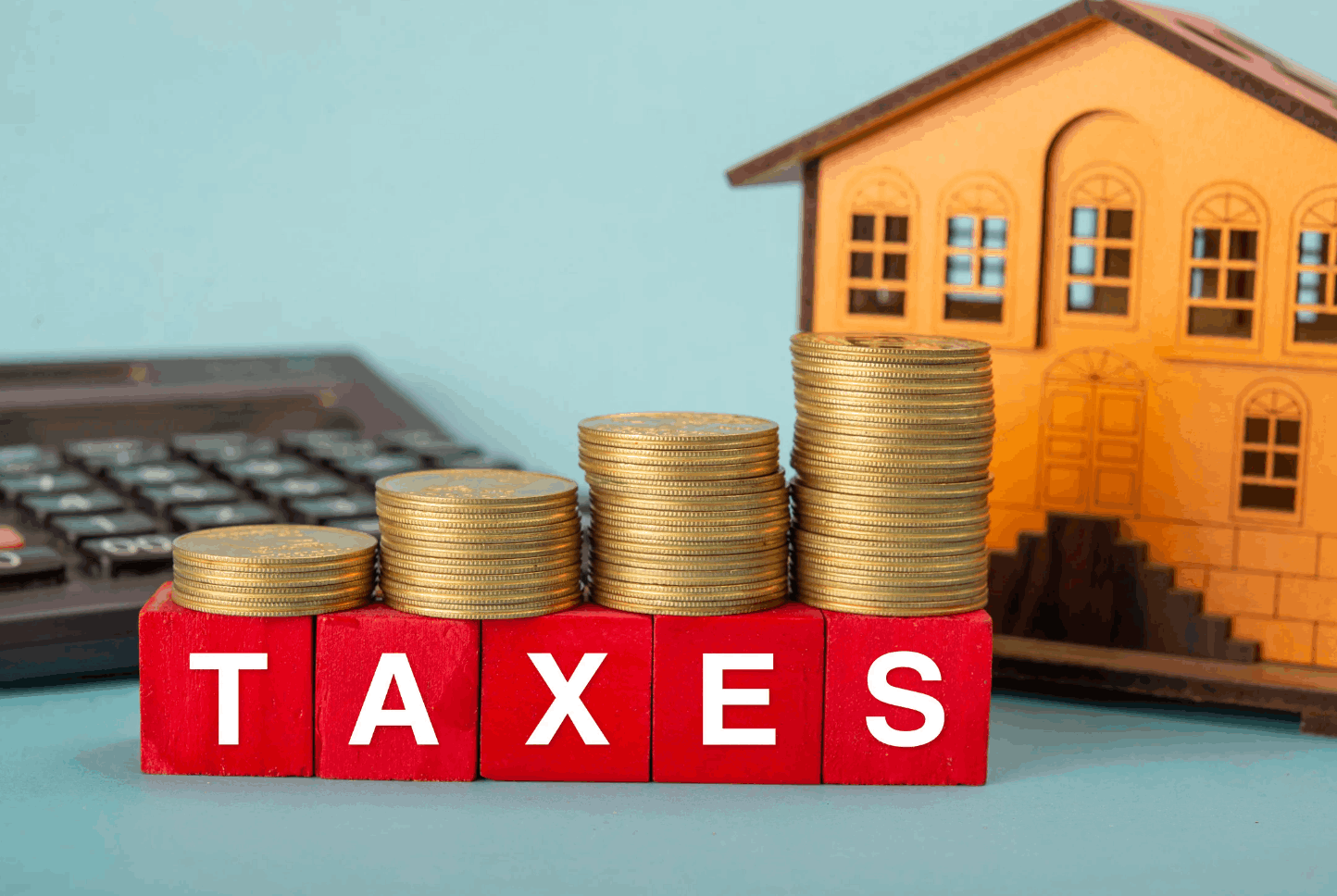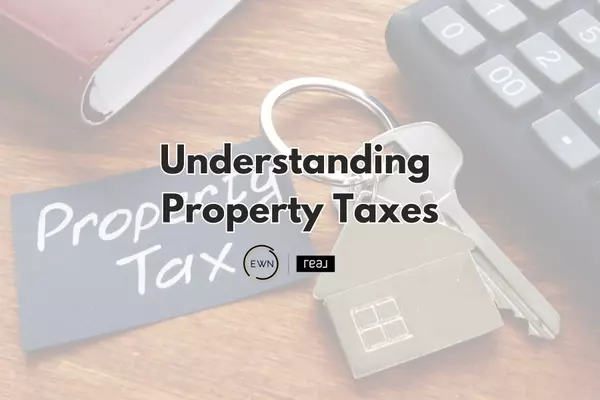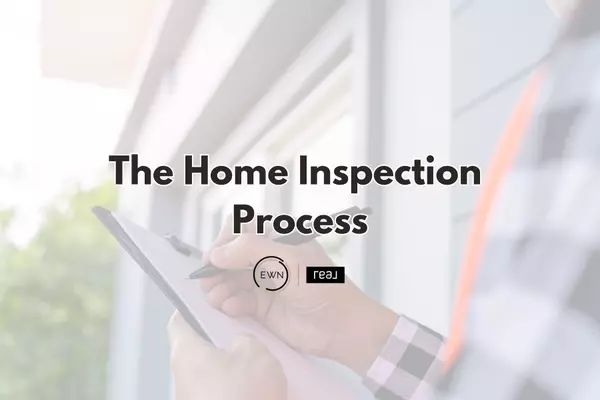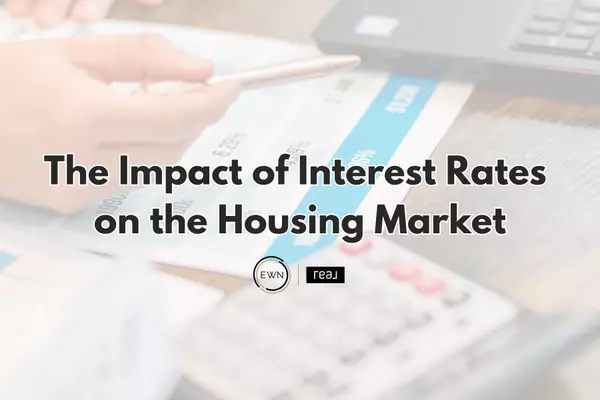Understanding Property Taxes: A Homeowner's Guide
Understanding Property Taxes: A Homeowner’s Guide

Whether you're a first-time homebuyer or a seasoned homeowner, understanding property taxes is critical. These taxes are more than just another line item on your mortgage statement—they fund vital local services like schools, emergency services, and public infrastructure.
However, many homeowners don’t fully understand how property taxes are calculated or what to do if they think their tax bill is too high. In this guide, we’ll demystify the process and explain how to appeal your property taxes if necessary.
What Are Property Taxes?
Property taxes are annual taxes paid by homeowners to their local government, typically the county or municipality, based on the assessed value of their property. These taxes are a major source of revenue for funding local services such as:
- Public schools
- Police and fire departments
- Road maintenance
- Parks and recreation
- Public libraries
Each locality sets its own tax rate, and the method of assessment can vary significantly from one region to another.
How Are Property Taxes Calculated?
Property taxes are typically calculated using this basic formula:
Assessed Value × Tax Rate = Property Tax Bill
Let’s break down each component:
1. Assessed Value
The assessed value of your home is an estimate of its worth as determined by your local tax assessor. This is not the same as your home's market value (what it would sell for) or its appraised value (used by lenders during a mortgage process).
Some counties reassess properties annually; others may do so every few years.
- Example: If your home is assessed at $300,000 and your local tax rate is 1.25%, your annual property tax would be $3,750.
📌 Pro Tip: You can often find your home’s current assessed value on your county assessor’s website.
2. Local Tax Rate (Millage Rate)
The millage rate is the amount per $1,000 of assessed value that you’ll pay in taxes. For example, a millage rate of 25 mills means you’ll pay $25 for every $1,000 of assessed value.
Millage rates are set by local governments and can vary widely based on the funding needs of the area.
🧠 Want to dive deeper into how millage rates work? Read this explainer from Investopedia.
What Affects Your Property Taxes?
Several factors influence how much you’ll pay in property taxes:
- Location: Urban areas may have higher tax rates due to greater demand for services.
- Property Type: A single-family home, condo, or multi-family unit may be taxed differently.
- Home Improvements: Renovations or additions can raise your assessed value.
- Local Budget Changes: If your city increases its budget for schools or infrastructure, your tax rate may go up.
Can Property Taxes Change?
Yes, and they often do. Your property taxes may increase if:
- Your local government raises the tax rate.
- Your property is reassessed at a higher value.
- A local levy (like a school bond) is passed.
Conversely, they may decrease if:
- The market value of your home drops and the assessment reflects this.
- You successfully appeal your assessment.
- You qualify for certain tax exemptions (e.g., homestead, senior citizen, or veteran exemptions).
✅ Learn more about available tax exemptions in your state from NerdWallet's state-by-state guide.
How to Appeal Your Property Taxes
If you believe your property has been assessed too high, you have the right to appeal. While the process varies by location, the general steps are as follows:
1. Review Your Assessment Notice
Each year, you should receive a property tax assessment notice in the mail. This document details your home’s assessed value and how your property tax was calculated.
If something looks off, take note.
2. Research Comparable Properties
Use public records to find similar homes in your neighborhood. If they are assessed at lower values despite being similar in size, age, or location, this may support your case.
You can use tools like:
- Zillow's Property Value Estimator
- Your local assessor’s online database
3. Contact the Assessor's Office
Speak with your local assessor to clarify how your property’s value was determined. Sometimes, assessments are based on incorrect information (e.g., incorrect square footage or amenities).
4. File a Formal Appeal
If a conversation with the assessor doesn’t resolve the issue, file a formal appeal with your local tax board. This typically requires:
- A written appeal form
- Evidence (photos, comps, inspection reports)
- Possibly attending a hearing
Deadlines for appeals vary by county, so act quickly.
📚 For a step-by-step breakdown, see Realtor.com's guide to appealing property taxes.

How to Lower Your Property Taxes Without an Appeal
Even if you’re not filing an appeal, you might be able to reduce your tax bill through other methods:
1. Apply for Exemptions
As mentioned earlier, you may qualify for exemptions based on your age, veteran status, disability, or whether the home is your primary residence.
2. Limit Home Improvements
While adding a deck or finishing your basement might boost your home's value, it also increases your taxable value. Consider this tradeoff before major renovations.
3. Ensure Accurate Records
Review your property card (kept by the assessor’s office) for errors. If it lists an extra bathroom or incorrect square footage, request a correction.
FAQs About Property Taxes
Q: Are property taxes included in my mortgage?
A: Often, yes. Many lenders require an escrow account where part of your monthly mortgage payment covers property taxes and homeowner’s insurance.
Q: What happens if I don’t pay my property taxes?
A: Failing to pay can lead to tax liens, additional penalties, or even foreclosure in extreme cases. Always keep up with payments or reach out to your county for hardship assistance programs.
Q: Can property taxes be deducted on my income taxes?
A: Yes, up to $10,000 under the SALT (State and Local Taxes) cap, per IRS guidelines. Speak with a tax professional for personalized advice.
📖 For more details, see the IRS guide on deductible taxes.
Conclusion: Why Understanding Property Taxes Matters
Understanding how property taxes are calculated empowers you to make better homebuying decisions and potentially save thousands of dollars over time. Whether you're shopping for a new home or reviewing your annual assessment, knowing your rights and responsibilities can help you manage your finances more effectively.
If you believe you’re paying too much, don’t hesitate to appeal your assessment. Doing a little homework today could lead to long-term savings and better financial control tomorrow.
Suggested Resources
Categories
Recent Posts











